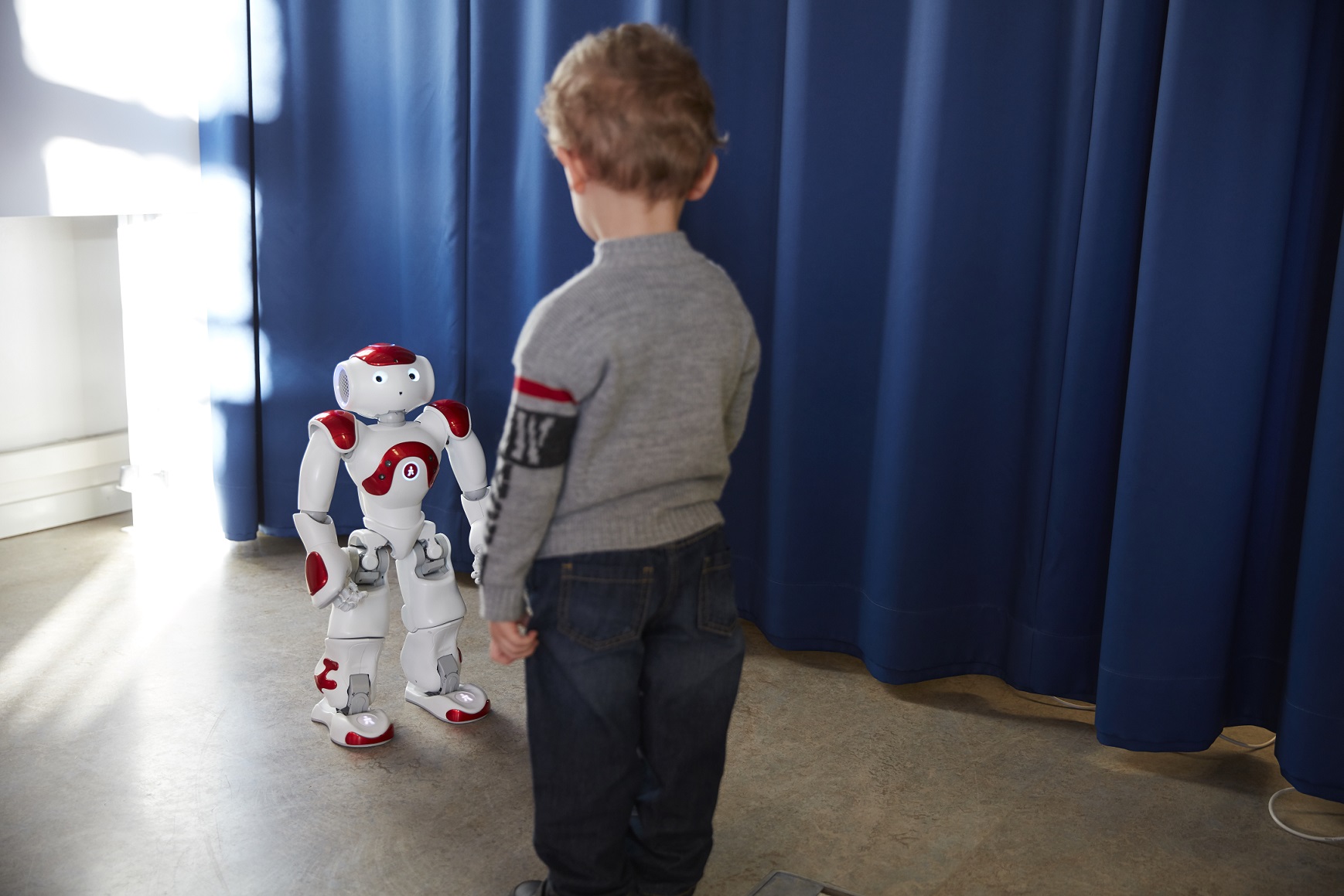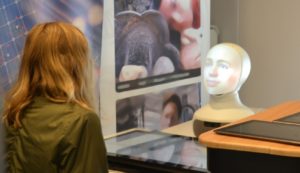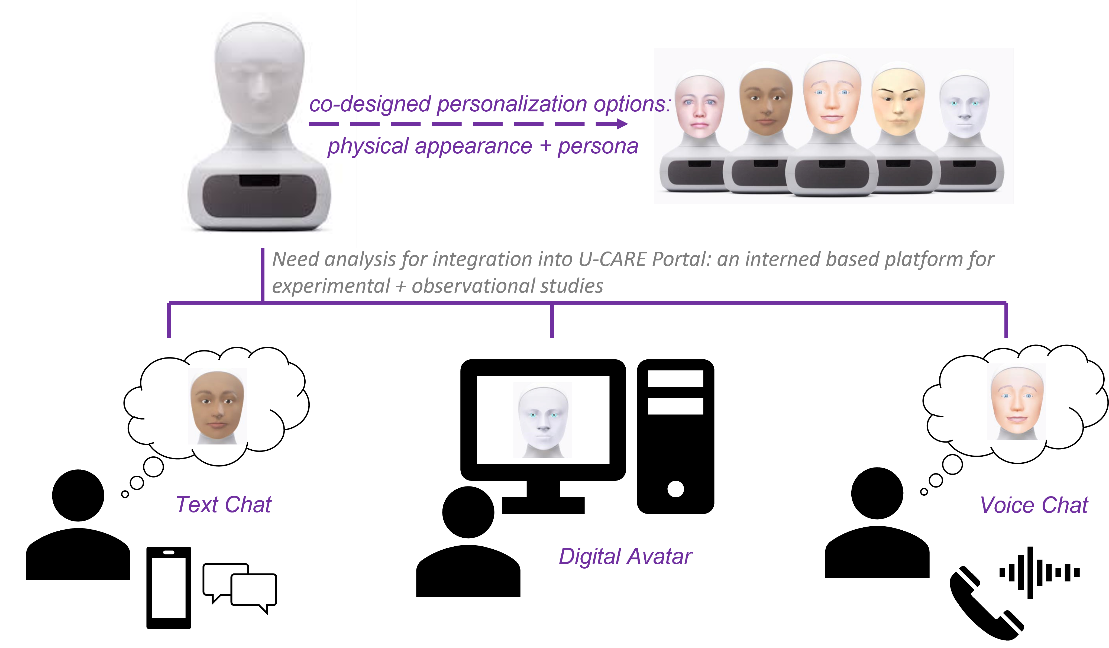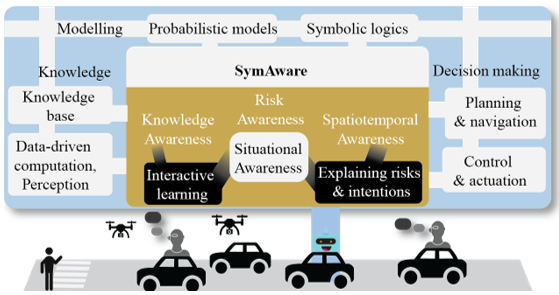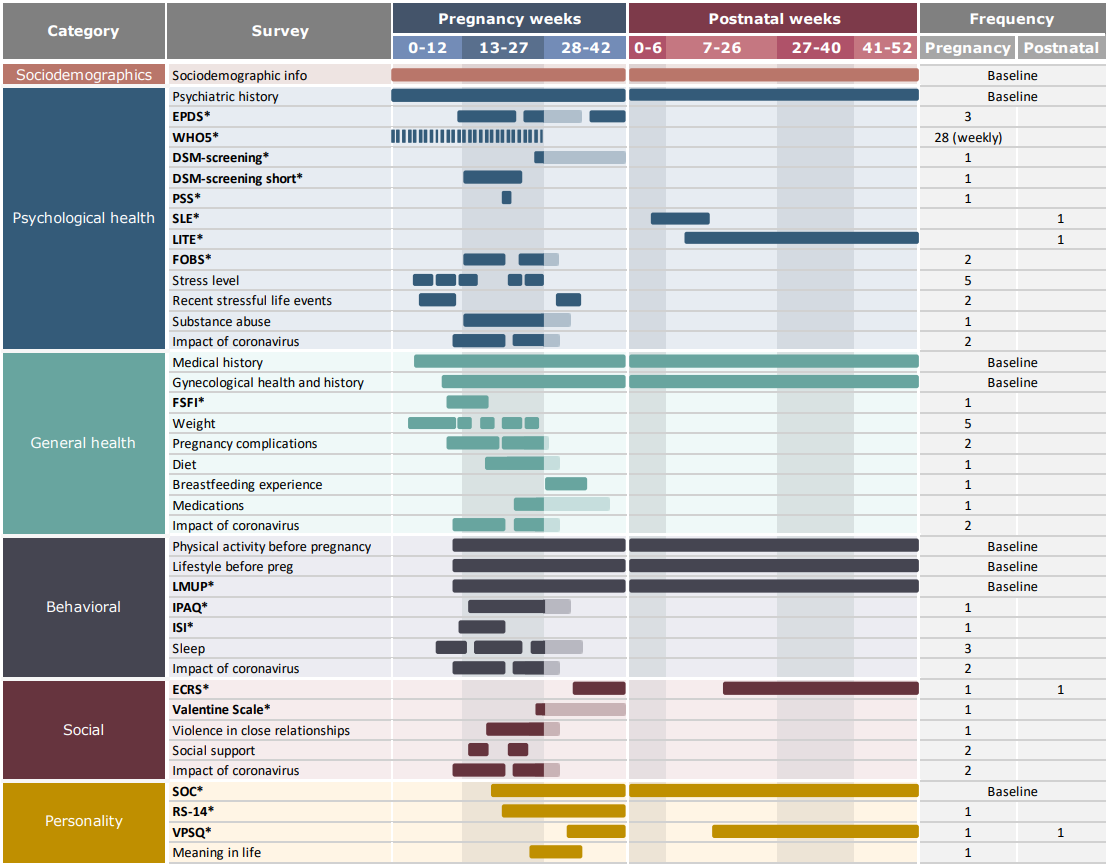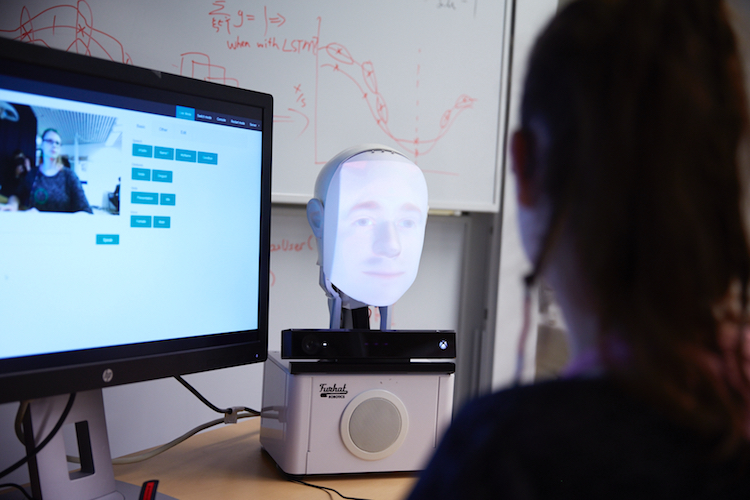Projects
This is a list of projects currently active at the Uppsala Social Robotics Lab.
Measuring children’s wellbeing and mental health with social robots (MICRO)
The MICRO project (2025-2028) aims to advance knowledge on how linguistic abilities and the ability to successfully engage in social interactions affect children’s wellbeing and mental health. To achieve this objective, the project will explore the use of social robots as new tools to measure children’s wellbeing and mental health in a school context. This will be done with a particular focus on vulnerable groups that are potential targets for preventative interventions, such as children with developmental language disorder and refugee children. The project is funded by Forte in the CHANSE-NORFACE Enhancing Well-being for the Future call. Coordinated by Uppsala University, it is a multi-party project in collaboration with other partners of the MICRO project’s consortium at the University of Cambridge (Hatice Gunes, Jenny Gibson, Tamsin Ford), ETH (Emily Cross) and Bielefeld University (Friederike Eyssel), as well as co-PIs Georgina Warner and Gustaf Gredebäck at Uppsala University.
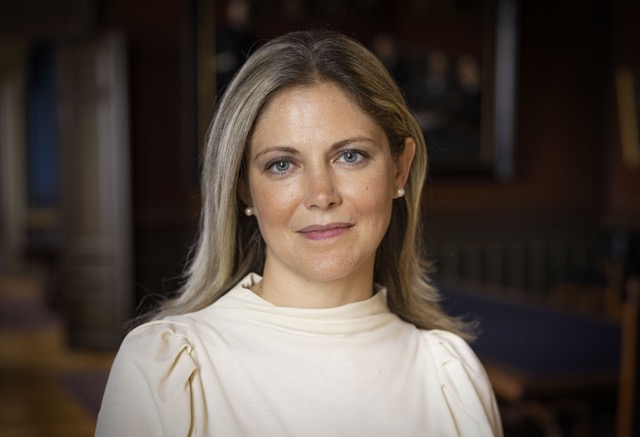
Large language models-powered social robots in cybersecurity applications (CYBERBOT)
CYBERBOT (2024-2028) aims to investigate social robots as both a potential vehicle of cybersecurity attacks and a mechanism to protect users from them. This project, funded by the Graduate School in Cybersecurity, Department of Information Technology, Uppsala University, is collaboration with an interdisciplinary team with expertise in social robotics and human-robot interaction (Ginevra Castellano and Katie Winkle), LLMs and deep learning (Ekta Vats), and privacy and cybersecurity (Boel Nelson).

Children’s Intuitive Theory of AI
This project, funded by the Marianne and Marcus Wallenberg Foundation (2023-2026), will explore trustworthy robots for preschoolers.

Creating Robots for Children, with Children
This Jacobs Foundation Research Fellowship (2023 - 2025) project is concerned with participatory design and automation of robots for/with children, aiming to minimise disparities in which kind of children get to benefit from socially assistive robots.

Co-Designing a Social Robot Facilitator to Boost Community Engagement with Type 2 Diabetes Prevention
This project, co-funded by the Uppsala Diabetes Research Centre and the Uppsala University Psychosocial Care Programme (U-CARE) (2022-2026) explores community-situated co-design and evaluation of a social robot based system designed to increase engagement with Type 2 Diabetes prevention within socioeconomically disadvantaged areas of Uppsala.


SymAware (Symbolic logic framework for situational awareness in mixed autonomy)
SymAware will be focused on human-in-the-loop design and automation methods for ethical and trustworthy awareness in human-robot interaction. The project is funded by Horizon Europe (2022-2025).



Robot-assisted diagnosis of women’s depression around childbirth
This project, funded by Uppsala University’s Centre for Women’s Mental Health during their Reproductive Lifespan (WoMHeR) (2021-2025), explores the use of social robots for screening of perinatal depression in women.


Explainable deep learning methods for human-human and human-robot interaction
This project, funded by Uppsala University’s Centre for Interdisciplinary Mathematics (2020-2024), aims at building on advances in deep learning, and in particular on the field of Explainable Artificial Intelligence (XAI), which offers approaches to increase the interpretability and explainability of the complex, highly nonlinear deep neural networks, to develop new machine learning-based methods that: (1) automatically analyse and predict alignment in human-human interaction (HHI), (2) visualize and provide interpretation of regions of focus, as well as the type of used information (e.g., face expression, eye movement, body position, etc.), in network’s decision/prediction making to aid understanding of the alignment in HHI.


